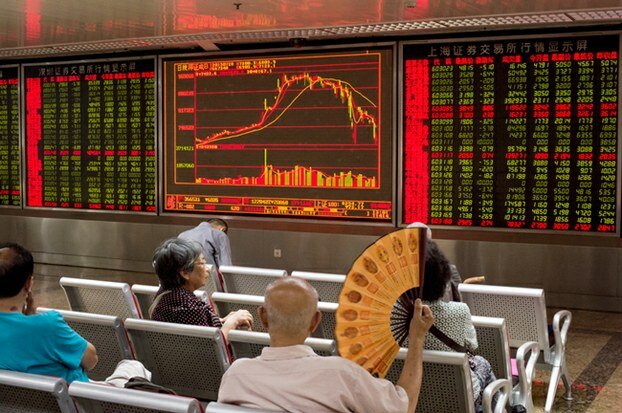South Korea’s Kospi fell 0.4 per cent to close at 2,038.81.
WALL STREET: U.S. stocks have declined over the past week after a number of big companies reported disappointing earnings.
The losses build on an 8.5% decline on Monday for the benchmark Shanghai index, its worst performance in eight years. ‘Many investors are concerned that China’s stock market falls will spill over into other regions, but we think it’s an isolated event that won’t significantly impact global markets. “But this kind of thing will eventually fail because the stock market trade in the long-run should go with the economic trend”.
Monday’s 8.48 percent fall in Shanghai was the biggest drop since February 27, 2007 and sent tremors through global bourses.
The securities regulator also said authorities would crack down on anyone who engages in “malicious shorting of stocks” in Beijing’s latest attempt to stave off a full-blown market collapse. It gave no further details.
Furthermore, fears over the Chinese equity markets have eased, IG market analyst Alastair McCaig said. The smaller Shenzhen Composite fell 7% to 2160.09 and the ChiNext, composed of small-cap stocks and sometimes known as China’s Nasdaq, closed 7.4% lower at 2683.45.
North American stocks bounced back on Tuesday, after Shanghai shares slowed their slide and European stocks stabilized.
But banking shares rose on expectations they are the target of government buying. “As China tries out the full range of its policy levers, we believe that eventually it will resort to exchange-rate depreciation”, she said.
In addition, more than $480 billion has been supplied to China Securities Finance Corp., a state-run financing vehicle.
The interventions contrast with pledges by the Communist party two years ago to allow the market to play a “decisive role” in the economy. But analysts have been skeptical that such gravity-defying efforts could be sustained.
China’s market is still ahead 13 per cent since January, but Toronto stocks have wiped out all their gains of this year.
‘First, most of the volatility in China has been in A-shares, a category dominated by domestic investors.
Beijing has again signalled its determination to restore calm to rattled markets, including providing loans to buy shares and put a floor under falling prices.
“The CSRC has already set up an inspection and enforcement force, specifically focused on examining clues about concentrated dumping of shares on the 27th”, spokesman Zhang Xiaojun was quoted as saying in a question-and-answer transcript posted on its website.
